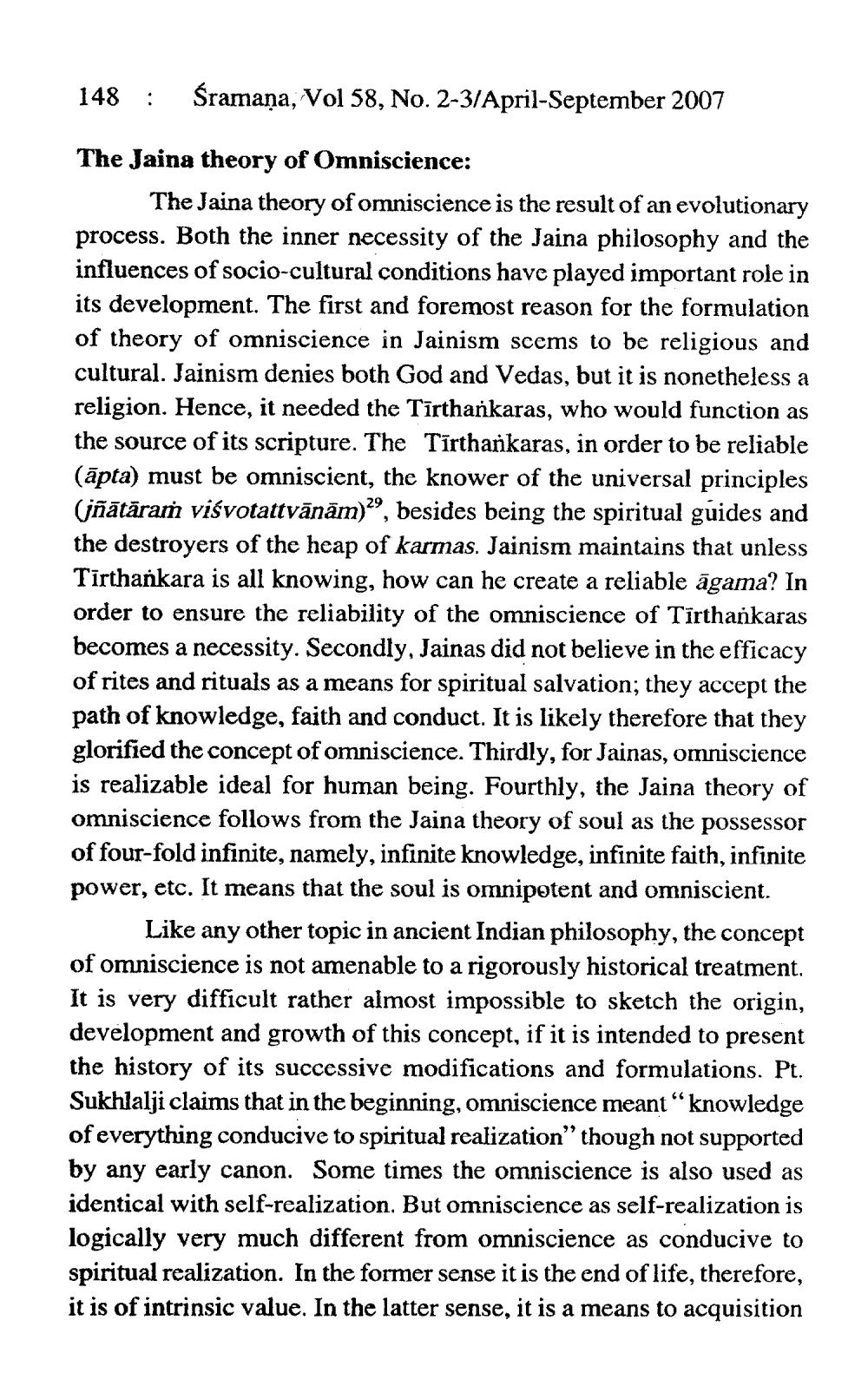________________
148 :
śramaņa, Vol 58, No. 2-3/April-September 2007
The Jaina theory of Omniscience:
The Jaina theory of omniscience is the result of an evolutionary process. Both the inner necessity of the Jaina philosophy and the influences of socio-cultural conditions have played important role in its development. The first and foremost reason for the formulation of theory of omniscience in Jainism scems to be religious and cultural. Jainism denies both God and Vedas, but it is nonetheless a religion. Hence, it needed the Tīrthankaras, who would function as the source of its scripture. The Tīrthankaras, in order to be reliable (āpta) must be omniscient, the knower of the universal principles (jñātāraṁ viśvotattvānām), besides being the spiritual guides and the destroyers of the heap of karmas. Jainism maintains that unless Tīrthankara is all knowing, how can he create a reliable āgama? In order to ensure the reliability of the omniscience of Tīrthankaras becomes a necessity. Secondly, Jainas did not believe in the efficacy of rites and rituals as a means for spiritual salvation; they accept the path of knowledge, faith and conduct. It is likely therefore that they glorified the concept of omniscience. Thirdly, for Jainas, omniscience is realizable ideal for human being. Fourthly, the Jaina theory of omniscience follows from the Jaina theory of soul as the possessor of four-fold infinite, namely, infinite knowledge, infinite faith, infinite power, etc. It means that the soul is omnipotent and omniscient.
Like any other topic in ancient Indian philosophy, the concept of omniscience is not amenable to a rigorously historical treatment. It is very difficult rather almost impossible to sketch the origin, development and growth of this concept, if it is intended to present the history of its successive modifications and formulations. Pt. Sukhlalji claims that in the beginning, omniscience meant“ knowledge of everything conducive to spiritual realization" though not supported by any early canon. Some times the omniscience is also used as identical with self-realization. But omniscience as self-realization is logically very much different from omniscience as conducive to spiritual realization. In the former sense it is the end of life, therefore, it is of intrinsic value. In the latter sense, it is a means to acquisition




